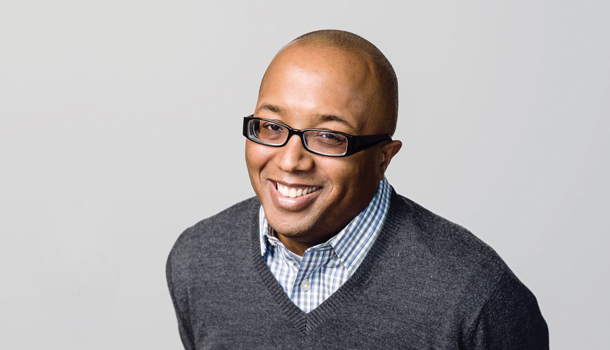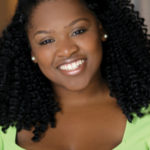
The Wizard Behind the Curtain
Robert O’Hara brings female-themed production of ‘The Wiz’ to TUTS.
Openly gay thespian Robert O’Hara promises a “contemporary” feel for this month’s production of The Wiz at Theatre Under The Stars, sparked by the casting of several women who will play male characters in this 1975 musical based on The Wizard of Oz.
The Cowardly Lion, for example, is played by a female “because the female lion is the hunter and the gatherer,” O’Hara explains. “For a lioness to have no courage, it takes your imagination to a different place.”
That place is today, he says. “Our Dorothy lives right now. She is a teenage girl in the age of Beyoncé, Trump, and the Internet, where social media tells you everything that’s wrong with you.”
The Wizard, too, is a female in O’Hara’s mounting, which runs October 23–November 4 at the Hobby Center. “Since the actor playing the Wizard is usually double-cast as Uncle Henry, I’m calling her Aunt Henrietta,” he says. “That means that Dorothy will be raised by two women. We’re not saying they are two lesbians. We call them her two aunts. We just let the audience take it on face value.”

Dorothy, of course, is Dorothy Gale, whom movie fans associate with Judy Garland, but in this retelling of L. Frank Baum’s classic children’s novel, she’s an African-American girl. The show’s original Broadway production won seven Tony Awards, including Best Musical, in 1975.
O’Hara was still a child.
“When I saw the movie The Wizard of Oz, I identified with Dorothy because she was lost. She wanted to run away to a place where she could be who she was, where she could find herself. My first experience with The Wiz was watching the film, and I identified with the Scarecrow because he was played by Michael Jackson, one of my idols in childhood.”
The poorly received 1978 movie version of The Wiz starred Diana Ross, with the character of Dorothy rewritten as a shy young schoolteacher in Harlem. In addition to Jackson, the film featured Nipsey Russell, Richard Pryor, and Lena Horne.
O’Hara played the Scarecrow in a high school production of The Wiz in Cincinnati, Ohio, where he felt “other.” “I was always different, and I was treated as different. My mother was one of 11 brothers and sisters, so I had this huge extended family. I was one of the first grandkids, so I had uncles who were teenagers. They called me ‘faggot’ and treated me abominably because that’s what teenage boys do when you’re different. They told me to ‘toughen up.’ To them, my otherness was a sign of weakness. The way I chose to fight back was verbally. I disappeared into books and into school and into language,” he recalls.
After high school, O’Hara fled to Tufts University in Boston. “One of the reasons I went there was to be far away from Cincinnati and the middle of America. I wanted coastal space, either coast, so my parents would be far enough away they would have to give me fair warning before visiting; they couldn’t come in an hour. I didn’t know I was gay, but the environment at college allowed me to come out. College was a place I could believe in things that my parents hadn’t told me about; and I realized that I was ‘enough.’”
O’Hara adds, “Dorothy is immediately ‘other’ because she has no parents; she is an orphan. She is being raised by two aunts in Kansas, not in a big city. We don’t see any of her friends. She is a young girl who feels trapped. On her journey to Oz, she meets a bunch of ‘other’-looking people. I have always thought it was a little strange that she would only imagine three men, and that she would have to kill a woman. Nobody could ever explain, ‘Why is that?’”
A professor in college told O’Hara, “I think you’re a playwright,” he recalls. “Even in high school, I had written plays, but I had never thought of theater as a career; it was an extracurricular activity up to that point. There would always be music in my plays. I love listening to the music in The Wiz; it connects me to my youth and my sense of liberation.”
As a playwright, O’Hara has been honored with Lambda Literary Awards in the LGBT Drama category for penning scripts (including Bootycandy and Barbecue) that shed light on being African-American and gay.
What: The Wiz
When: October 23–November 4
Where: Hobby Center, 800 Bagby St.
Tickets: TUTS.com
This article appears in the October 2018 edition of OutSmart magazine.










